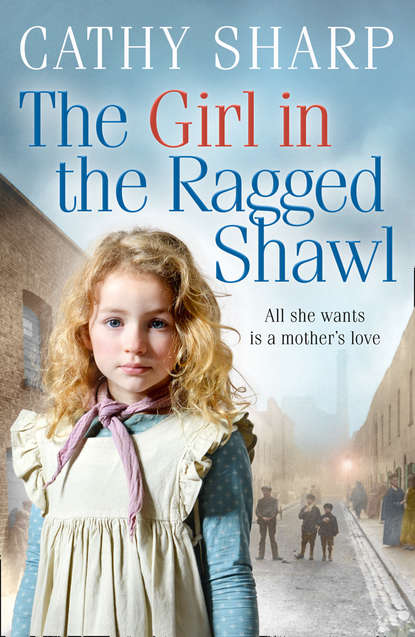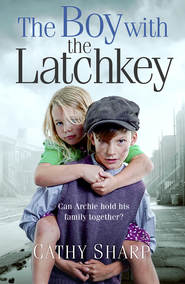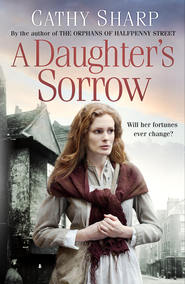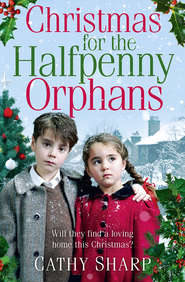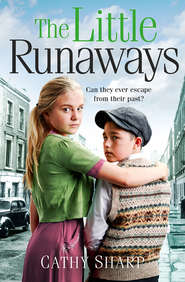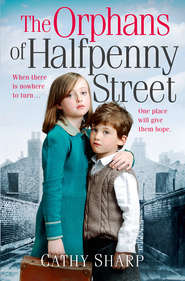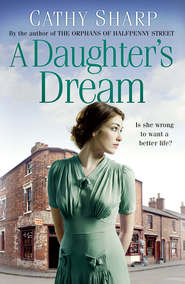По всем вопросам обращайтесь на: info@litportal.ru
(©) 2003-2024.
✖
The Girl in the Ragged Shawl
Автор
Год написания книги
2019
Настройки чтения
Размер шрифта
Высота строк
Поля
He had good friends, several of whom were married ladies that he might have taken to bed had he so wished, but he lived, for the most part, a celibate life. Yet he enjoyed many things – sharing a lavish dinner with his friends was a favourite pastime, as was visiting Drury Lane and the other theatres that abounded in London. On occasion he had even visited a hall of music, where singers and comedians entertained while drinks were served. He found it amusing and it helped him to see much of the underlife that ran so deep in Victorian society. It was seeing the plight of women thrown out of the whorehouse to starve because they were no longer attractive enough to serve the customers that made him feel he must do something to help, at least a few of them.
Mixing with a rougher element at the halls of music brought him in touch with the extreme poverty that the industrialisation of a mainly rural nation had brought to England. It had begun a century before, becoming worse as men who had been tied to the land followed the railways looking for work and then flocked to the larger towns, bringing their women and children with them. The lack of decent housing and living space had become more apparent and the poor laws which had once provided help, with at least a modicum of dignity, had failed miserably to support a burgeoning population. Public houses catered to the need to fill empty lives with gin, which brought temporary ease to those suffering from cold and hunger. It was because the towns and cities had become too crowded that the old laws were no longer sufficient to house and feed those unable to support themselves, so the workhouses had been built. All manner of folk, weak in mind and body were sent there, as well as those who simply could not feed themselves.
Arthur frowned as he climbed into bed and turned down the wick of his oil lamp. He’d long ago had gas lighting installed downstairs but preferred the lamps for his bedroom. His thoughts were still on the workhouse. It had been thought a marvellous idea to take in men, women and children who were living on the streets or in crumbling old ruins in cities and towns; to feed them, clothe them, and give them work, though production of goods made cheaply by the inmates was disapproved of by the regular tradesmen, who felt it harmed their livelihoods. Indeed, it should have been a good solution, but it was being abused. Women like that Simpkins harridan abused their power. Arthur frowned as he closed his eyes. His instincts told him that she had beaten the boy that died and locked that poor girl in the cellar – but was that all she was up to?
CHAPTER 3 (#uec02cbf0-eff7-50ea-8863-d17798bf3a4e)
Joan Simpkins was in a foul mood. She had sharply reprimanded by her brother, because he’d been warned that if there were more deaths they would be investigated and he could lose his ward-ship of the workhouse.
‘You must curb your temper,’ he’d told Joan after the latest meeting of the Board of governors. ‘I’ve been informed that we’re bein’ watched and if they find we’re mistreating the inmates we’ll be asked to leave.’
Joan felt her temper rise. Nothing annoyed her so much as knowing that those mealy-mouthed men and women, who understood little of what the poor were actually like, taking her to task. The Board consisted of gentlemen, prosperous businessmen, wives of important men, and even a military officer – and what did they know of the stinking, coarse wretches she was forced to deal with every day? Even when water and soap was provided some of them didn’t bother to wash, and some thought it dangerous to take off the shirt they’d worn all winter until it was mid-summer – and the women who came to the workhouse bearing an illegitimate child got no sympathy from Joan; they were whores and wanton and deserved to be treated as such. She made them wear a special uniform that proclaimed their sin and, if she had room, segregated them from the others in a special ward and made them scrub floors until they dropped the brat.
Now, she glared at her brother. ‘That wretched girl accused me of causing that stupid boy’s death. I had to make an example of her. If I hadn’t nipped it in the bud there would’ve been a rebellion. If something like that reached the ears of that interfering man Arthur Stoneham …’
‘Well, well, I daresay you had your reasons. However, Mr Stoneham has been very generous to us, Joan. He paid for the installation of new water pipes and we’ve not had a return of the cholera since then. He has granted us money towards some very necessary repairs to the roof and that will give the men work for weeks and us extra money.’
It was all right for her brother, Joan thought resentfully. Robbie was weak and lazy. He always took his cut of any money that came in. The funds for running the workhouses were raised by taxing the wealthy, which caused some dissent, but others saw it as a good thing that vagrants were taken off the streets, and made donations voluntarily. Joan did not share in her brother’s perks and was only able to save a few pence on the food and clothing she supplied to the women and children in her ward. If it were not for her other little schemes she would not have a growing hoard of gold coins in her secret place.
Joan hated living in the workhouse. The inmates stank and their hair often crawled with lice when they were admitted. Most of them obeyed the rules to keep themselves clean, but there were always some who were too lazy to bother. It was all very well for Mr Stoneham and the doctor to say the inmates should be given more opportunities to bathe. Heating water cost money and so did the soap she grudgingly gave her wards. She needed to pocket some of the funds she was given for their upkeep, because one day she intended to leave this awful place.
Joan had dreams of living in a nice house with servants to wait on her, and perhaps a little business. Once, she’d hoped she might find a man to marry her, but she was now over thirty and plain. Men never turned their heads when she walked by in the market and she resented pretty women who had everything given to them; like the woman who had brought that rebellious brat in and begged her to keep her safe from harm.
‘One day I’ll come back and pay you in gold and take her with me,’ the woman had promised, her eyes filled with tears.
She’d crossed Joan’s hands with four silver florins and placed the squalling brat in her arms. As soon as she’d gone, Joan had given the brat to one of the inmates and told her to look after it. She’d told Ruth that the child had been brought in by a doctor, though she hardly knew why she lied. Perhaps because she liked secrets and she’d believed then that the woman would return and pay to take the girl with her. She’d kept the girl all these years, refusing two offers to buy her, because of the woman’s promise, but the years had passed and the girl was nearly thirteen. She was a nuisance and caused more trouble than she was worth. It was time to start thinking what best to do with her …
Eliza paused in the act of stirring the large tub of hot water and soda. A load of clothes had been dumped into it earlier and it was Eliza’s job to use the wooden dolly stick she’d been given to help release the dirt from clothes that had been worn too long. They smelled of sweat, urine and excrement where the inmates wiped themselves for lack of anything else, and added to the general stench of the workhouse.
It was steamy and hot in the laundry, though the stone floors could be very cold in winter, especially if your feet were bare, and Eliza had been set to work here again once she recovered from her ordeal in the cellar. So far she’d been asked to stir the very hot water and then help one of the other women to transfer the steaming clothes to a tub of cold water for rinsing. Eliza wasn’t yet strong enough to turn the mangle they used to take out the excess liquid before the washing was hung to dry on lines high above their heads, which were operated by means of a pulley.
‘Watch it, girl,’ a cackling laugh announced the approach of Sadie, the oldest inmate of the workhouse. She’d been here so many years she couldn’t remember any other life. ‘Mistress be in a terrible rage this mornin’.’
Eliza looked at the older woman in apprehension. Sadie was handy with her fists on occasion and Eliza had felt the brunt of her temper more than once. She was the only one that didn’t seem to fear the mistress and was seldom picked on by her.
‘I’ve done nothin’ wrong, Sadie,’ Eliza said. ‘Do you know what has upset her?’
‘I knows the master took in a boy this mornin’ – a gypsy lad he be, dirty and rough-mannered, and mistress be told to have him bathed and feed him. She can’t abide gypsies.’
‘What exactly is a gypsy? I’ve heard the word but do not know what it means.’
‘They be travellin’ folk,’ Molly, another inmate, said coming up to them with an armful of dirty washing. They ain’t always dirty nor yet rough-mannered. I’ve known some, what be kind and can heal the sick.’
Sadie scowled and spat on the floor. ‘You’m be a dirty little whore yerself,’ she snarled and walked off.
‘Sadie’s in her usual cheerful mood.’ Molly winked at Eliza. ‘Do you want a hand with the rinsing, Eliza love?’
‘Would you help me?’ Eliza asked hopefully. ‘Sadie is supposed to give me a hand lifting the clothes into the tub of cold water, but she gets out of it whenever she can.’
‘You’re too small and slight for such work, little Eliza,’ Molly said and grinned at her. ‘And I’m too big.’ She laughed and looked at her belly, because she was close to giving birth again. Molly had been to the workhouse three times to give birth since Eliza had been here and each time she’d departed afterwards, leaving the baby in Mistress Simpkins’ care. Ruth had told her that the warden sold the babies to couples who had no children of their own.
Since workhouse children who were found new lives were thought to be lucky, no one sanctioned the mistress for disposing of the babies as she chose.
‘You might hurt yourself,’ Eliza said as Molly took up the wooden tongs. ‘If you lift something too heavy it might bring on the birth too soon.’
‘What difference?’ Molly shrugged. ‘If the babe be dead it will be one less soul born to misery and pain.’
Eliza looked up at her. ‘Would you not like to keep your child and love it?’
‘They wouldn’t let me. I should have to leave the whorehouse and I have nowhere else to go and no other way of earning my living,’ Molly said and pain flickered in her eyes. ‘They own me, Eliza love, body and soul.’ She smiled as she saw Eliza was puzzled. ‘You don’t understand, and I pray to God that you never will.’
‘If you are unhappy why don’t you go far away?’ Eliza asked. ‘When I’m older I shall go away, go somewhere there are flowers and trees and fields …’
‘What do you know of such things?’ Molly laughed as she started to transfer clothes from the steaming hot tub to the vat of cold water.
‘Ruth’s father was a tinker and they used to travel the roads. He found work where he could and they lived off the land, foraging for food and workin’ for what they could not catch or pick from the hedges.’
‘And where did that get them?’ Molly said wryly. ‘He took ill one winter and was forced to bring them into the workhouse. Ruth Jones has watched all her family die, one by one, and now what does she have to look forward to? It be a life of toil in the workhouse unless she be given work outside – and when men come looking for a servant we all know what they want.’ Eliza shook her head and Molly laughed. ‘No, you be innocent as a new-born lamb, little one, but that won’t last – and when you understand the choice you’ll know why I choose the whorehouse.’
Eliza did not answer. She did not consider that Molly was free, for Ruth had told her the whorehouse was no better than the workhouse, even though the food was more plentiful and at least Molly had decent clothes and was able to wash when she wanted.
‘You, girl – come here!’
Eliza jumped because she’d had not noticed the mistress approaching. She left the rinsing to Molly and went to stand in front of the mistress, but instead of hanging her head as most of the inmates did, she looked her in the face and saw for herself that Sadie was right: mistress was in a foul mood.
‘There’s a boy,’ Mistress Simpkins said, looking at Eliza with obvious dislike. ‘He’s filthy and disobedient and refuses to answer me. Tell Ruth to scrub him with carbolic and give him some clothes. I want him presentable – and in a mood to answer when spoken to; if he refuses he will have no supper. You know that I mean what I say.’
‘Yes.’ Eliza’s eyes met hers. She knew all too well that Mistress Simpkins gained pleasure from punishing those unfortunate enough to arouse her ire. ‘I’ll find Ruth – what is the boy’s name, please?’
‘His name is Joe, so I am told, but he refuses to answer to it.’ Mistress Simpkins’ eyes gleamed. ‘You might tell him what happened to you, girl.’
Eliza met her gloating look with one of pride. If it had been Mistress Simpkins’ intention to break her by shutting her in the cellar her plan had misfired. The horror she had endured had just made her hate the warden more and she was determined to defy her silently, giving her nothing she could use to administer more unjust punishment.
‘Yes,’ she said. ‘I might …’
‘You impertinent little bitch!’ Mistress Simpkins raised her hand as if she would strike but Molly made a move towards her and something in her manner made the mistress back away. ‘Get off and do as I tell you or you will feel the stick on your back.’
Eliza ran off, leaving the clammy heat of the washhouse to dash across the icy yard to the kitchen. She knew that if Molly hadn’t been there to witness it, Mistress Simpkins would have struck her. Molly had some status in the workhouse. Eliza didn’t know what it was but she thought perhaps the master favoured her.
She found Ruth in the kitchen helping Cook prepare vegetables and told her what the mistress had instructed her to do. Ruth nodded, for she was used to being given such tasks. Mistress Simpkins always passed on the children she could not be bothered with herself, and it was usually Ruth that had the task of caring for them.
‘Let’s fetch the lad here,’ she told Eliza with a smile. ‘We’ll give him a drop of the master’s stew – is that all right with you, Cook?’
‘Aye, Ruth lass. Let the boy get some food inside him and he’ll feel more like talkin’.’ Cook smiled at them. ‘I daresay you wouldn’t mind a drop of my soup, Eliza love? No need for the mistress to know. She grudges every penny she spends on our food, but she dare not question what I spend on the master’s dinners.’ She winked at them. ‘A little deception does no harm now and then. What say you, Eliza?’
‘I don’t want you to get into trouble or Ruth …’
‘Nay, lass, there’ll be no trouble. Mistress knows if I left she could not replace me. There’s not many would work here for the pittance they pay. So she would have to do the cooking herself or get another inmate to do it and none of them have the first idea how to start so I’m safe enough.’





